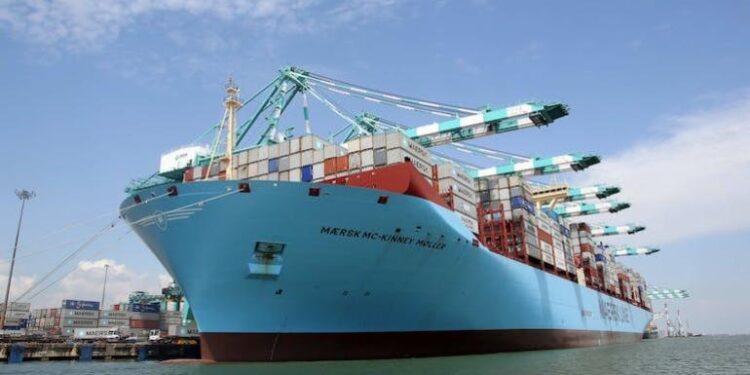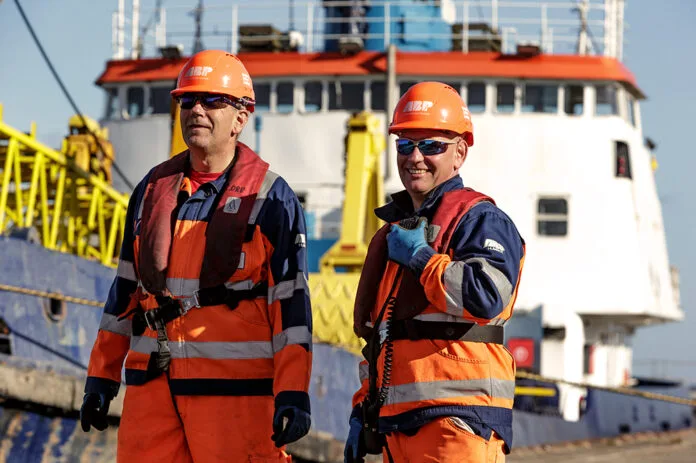Maersk Diverts Shipping Routes Amidst Heightened Houthi Threats: SEO-Optimized Rewrite
In response to escalating risks posed by Houthi attacks, Maersk, a prominent container line, announces extended rerouting measures impacting voyages in the Red Sea. Recent updates to customers highlight the expanding danger zone, prompting diversions around the Cape of Good Hope for the foreseeable future. The Danish line emphasizes the necessity to ensure the safety of crew, vessels, and cargo amidst increased complexity in the region.
Houthi militants have been targeting ships across a broad expanse of the Gulf of Aden and Indian Ocean, exemplified by the recent attack on the MSC Orion container vessel located approximately 400 nautical miles south of Yemen. This widening risk zone necessitates longer diversions, resulting in heightened transit times and operational costs for Maersk. Fuel expenses surge by approximately 40% per voyage, while charter rates soar threefold due to vessel shortages in a tight market environment.
Moreover, Maersk warns of industry-wide repercussions, including bottlenecks, delays, and equipment shortages, estimating a capacity loss of 15-20% in the Far East to North Europe and Mediterranean markets during Q2. To mitigate equipment shortages, Maersk leases an additional 125,000 containers, underscoring the significant operational challenges posed by the ongoing situation.
Further exacerbating concerns, Houthi threats extend to vessels in the East Mediterranean Sea, particularly those calling at Israeli ports, amplifying the urgency for maritime security measures. Recent developments include targeted strikes by Israel on Rafah in Southern Gaza, prompting retaliatory warnings from the Houthi faction.
Despite recent relative calm, heightened vigilance remains imperative, with US Central Command reporting the interception of an unmanned aerial system over the Red Sea. While major container lines like Maersk opt to avoid the Red Sea and Suez Canal routes, smaller operators continue to navigate the perilous waters, with over 90 transits recorded through the Bab-el-Mandeb straits since April 1st.
Among these, Singapore-based SeaLead Shipping and Chinese carrier New New Shipping stand out with the highest number of transits, signaling ongoing maritime activity amidst escalating tensions in the region.
















